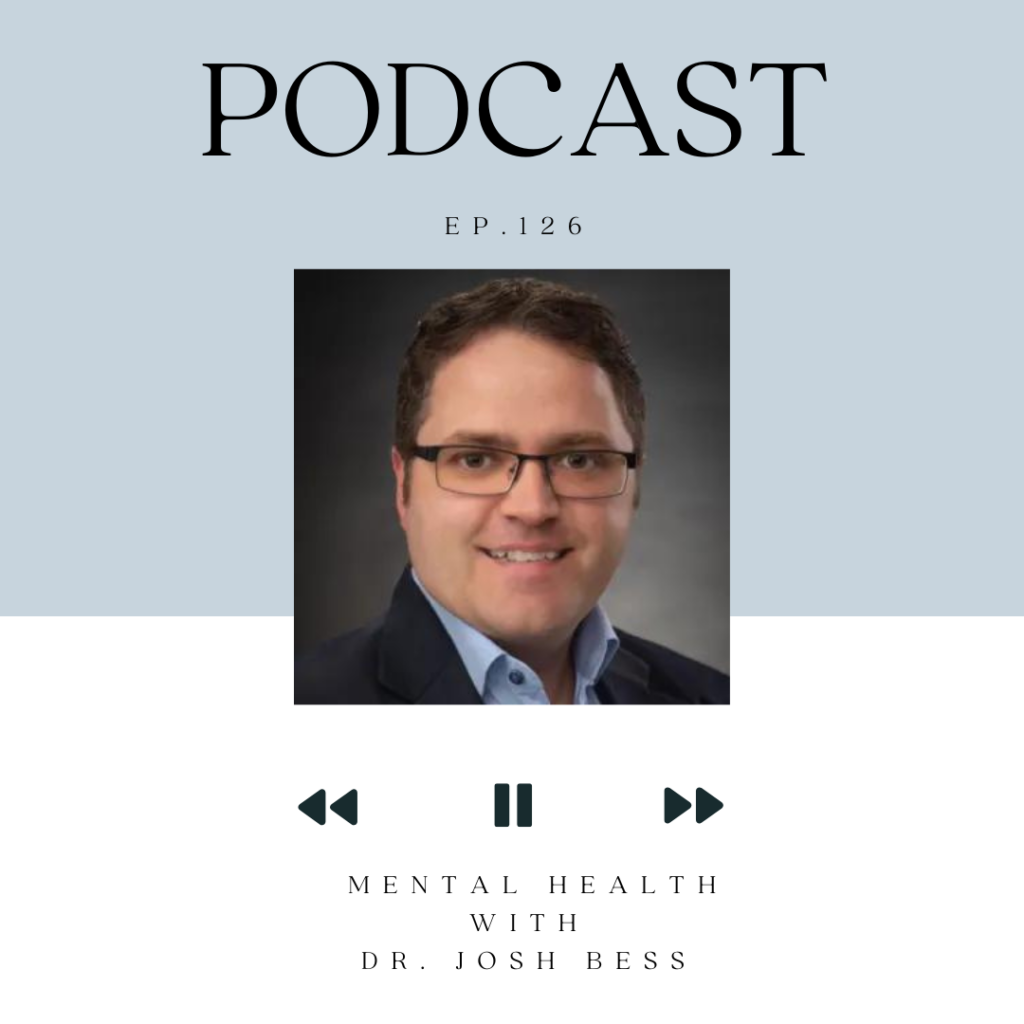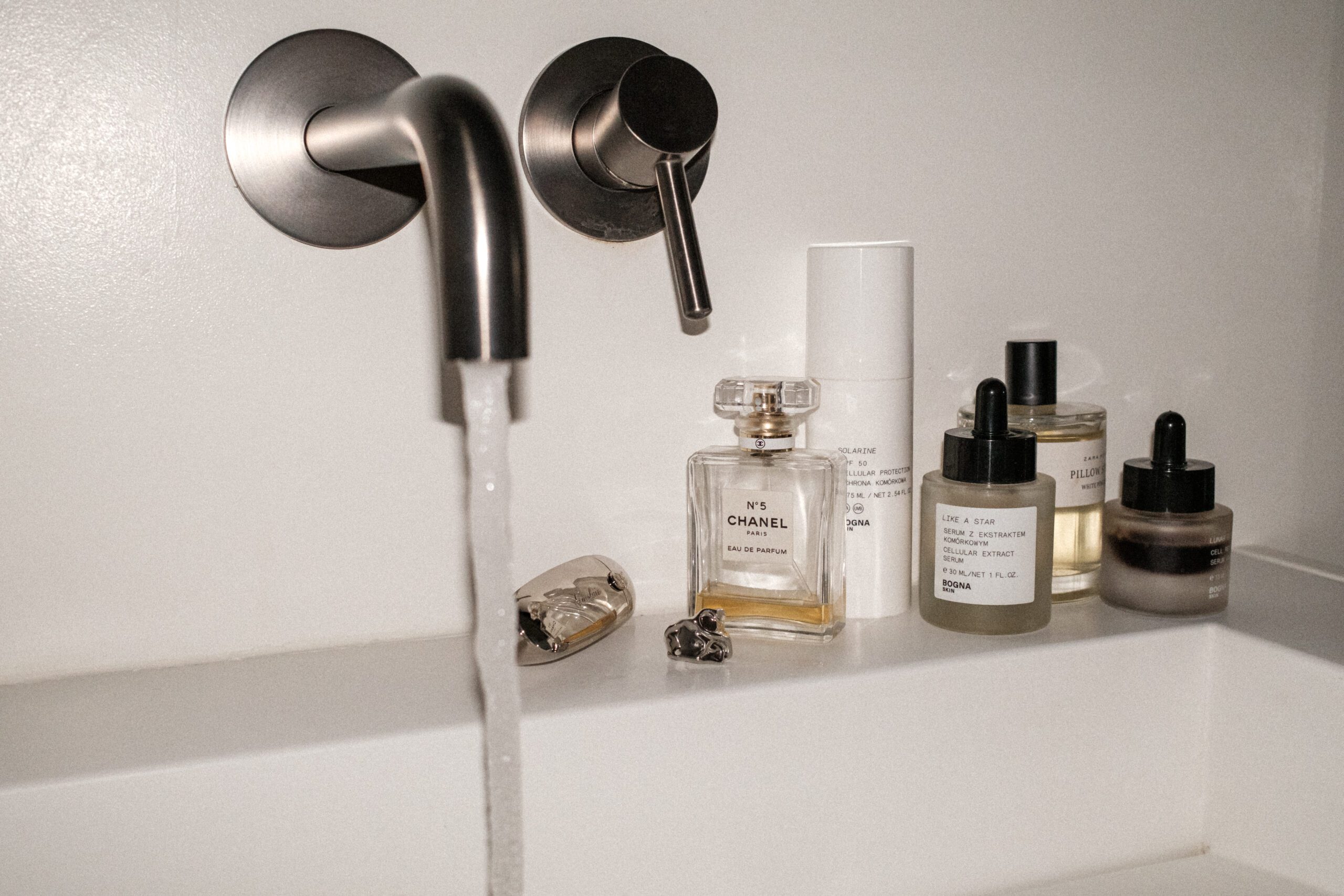
Table of Contents
Dr. Josh Bess On Mental Health
We are talking mental health with Dr. Josh Bess. Dr. Bess is a psychiatrist and leading expert in mental health and he joins us on the Blossom Your Awesome Podcast to give us some really big insights about mental health and how we need to address it and tackle it.
Mental Health And Why It Needs To Be Addressed
So let’s start by understanding why we need to be having more conversations around mental health in the first place. Mental health is an essential aspect of overall well-being that is often overlooked. It is crucial for us to understand mental health. We need to understand its consequences. And lastly we need to have ways to address it in order to promote a healthier and more productive society as a whole.

Understanding Mental Health
What is mental health? Mental health refers to a person’s emotional, psychological, and social well-being. It affects how we think, feel, and act, and it plays a significant role in our overall quality of life. Good mental health allows us to cope with the daily stresses of life, form and maintain positive relationships, and make meaningful contributions to society at large.
On the other hand, poor mental health can lead to a range of mental illnesses. These illnesses include depression, anxiety, bipolar disorder, and schizophrenia. These conditions can have a huge impact on our life. This can impede on our ability to function and lead a fulfilling life, affecting our relationships, work, and overall well-being.

The Consequences Of Ignoring Mental Health
Ignoring mental health can have severe consequences. It can lead to other things that can be detrimental like the development of mental illnesses, poor physical health, and social isolation. Mental illnesses can also severely affect your ability to work and lead a fulfilling life. And this unfortunately can lead to reduced productivity and increased absenteeism.
Moreover, mental health stigma keeps many people from seeking help, leading to a worsening of symptoms and reduced quality of life. Stigma can also keep people from addressing mental health adequately. This then leads to a lack of resources and support for those with mental illnesses.
Addressing Mental Health
There are several ways to address mental health to promote a healthier and more productive society.
- Seeking professional help
- practicing self-care
- seeking support from family and friends
- advocating for mental health awareness
The above are essential steps in addressing mental health.
Seeking professional help means seeing a mental health professional, like a therapist or psychiatrist. These professionals can provide diagnosis, treatment, and support if you or someone you know is struggling with mental illnesses. Some of the treatment options available for those struggling with mental illness include therapy, medication and other lifestyle changes.
Practicing self-care involves taking care of yourself both physically and mentally, dare I add spiritually. It includes getting enough sleep, eating a balanced diet, exercising regularly, and engaging in activities that bring joy and fulfillment. It also involves setting boundaries, managing stress, and practicing mindfulness.
Seeking support from family and friends offers us a sense of belonging, comfort, and support. It involves reaching out to loved ones and talking about your feelings and experiences. You can also join support groups or online communities where individuals can connect with others who share similar experiences.
Advocating for mental health awareness involves raising awareness about mental health issues and challenging mental health stigma. This includes speaking out about mental health and having conversations about it, actually talking about mental health. This could even be sharing personal experiences if we’re comfortable with opening up. And last, but not least supporting mental health organizations. It also includes promoting mental health education in schools, workplaces, and communities.
Economic Benefits Of Addressing Mental Health
Addressing mental health can also have economic benefits. If we could actually advocate enough and promote it enough improved mental health will lead to reduced healthcare costs. This is because people with good mental health are less likely to require medical intervention. Additionally, addressing mental health in the workplace will lead to greater productivity and less sick days. According to a report by the World Health Organization, every dollar invested in mental health treatment results in a return of four dollars in improved health and productivity. Now that’ll add up to some pretty pennies in the long run.
Conclusion
In conclusion, talking mental health is a critical component to gaining a deeper understanding. It’s crucial to our overall well-being, and it needs to be addressed to promote a healthier and more productive society. Understanding mental health, the consequences of ignoring it, and ways to address it is essential for reducing mental health stigma and improving the quality of life for those who suffer and society as a whole. By seeking professional help, practicing self-care, seeking support from family and friends, and advocating for mental health awareness, we can work towards a happier and healthier population.
It is crucial to remember that mental health is just as important as physical health. Remember – seeking help for mental health issues is a sign of strength. We need to all come together to encourage mental health awareness, reduce the stigma around mental disorders, and create a world where mental health is recognized and prioritized.
External Resource
For more information about mental health and ways to address it, visit National Alliance on Mental Illness.

A Great Mental Health Resource If You Need Help
And if you need more help –
As you know I’m a huge proponent of Mental wellness and ensuring we all get the help we need when we need it. And of course, I don’t want you just to get any help I want you to get the right help so I am now sponsored by BetterHelp.
BetterHelp is the world’s largest therapy service, and it’s 100% online.
BetterHelp offers a network of over 25,000 licensed and experienced therapists who can help you with a wide range of issues.
Just click on the link below, answer a few questions and get matched with a therapist from the network.
One of the most amazing features of BetterHelp, if you don’t jive with your therapist you can switch to a new one that’s a better fit for you any time free of charge.
With BetterHelp, you get the same professionalism and quality you expect from in-office therapy, but with a therapist who is custom-picked for you, more scheduling flexibility, and at a more affordable price.
Get 10% off your first month at Better Help – betterhelp.com/blossomyourawesome
Be sure to check out these other posts if you are stuck and struggling.
FAQ
Here are answers to some frequently asked questions about mental health:
What are the most common treatments for mental health?
The most common treatments for mental health vary depending on the individual and their specific condition. However, some common treatments include therapy (such as cognitive-behavioral therapy), medication, and lifestyle changes (such as exercise and a healthy diet). It’s important to work with a mental health professional to determine the best course of treatment for your specific needs.
Will I get better if I seek help?
Yes, seeking help for mental health issues can lead to significant improvements in symptoms and overall quality of life. While the recovery process may not be linear, seeking help is an important step in managing and treating mental health issues. Remember, it’s never too late to seek help, and there is no shame in doing so.
What if I’m not ready or feel scared to seek out professional help?
It’s normal to feel scared or hesitant about seeking professional help for mental health issues. However, it’s important to remember that seeking help is a sign of strength and courage. If you’re not ready to seek professional help, there are other steps you can take, such as talking to a trusted friend or family member, practicing self-care, and seeking out support groups. It’s important to prioritize your mental health and take steps towards seeking help when you feel ready.



































































































































































































































































